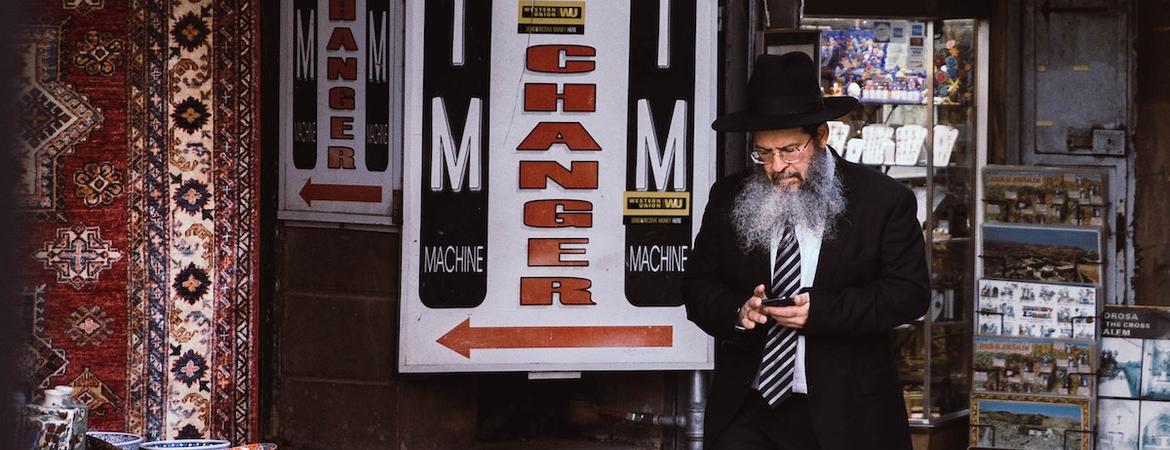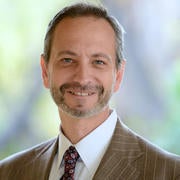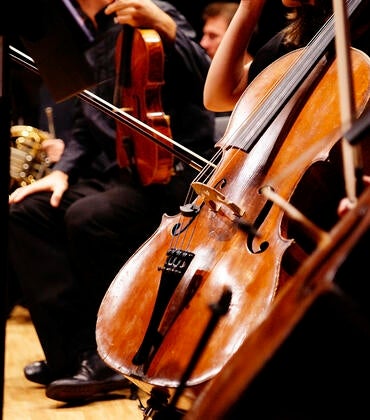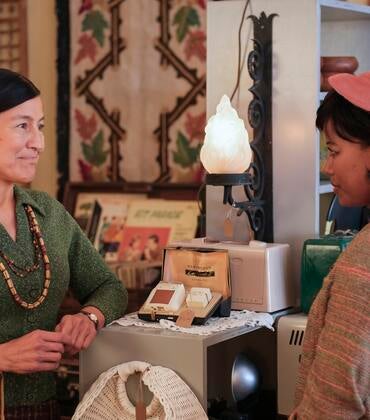
The Associated Press reported this week that preliminary data compiled by the Anti-Defamation League shows an increase in violent attacks, vandalism and harassment of Jews in the U.S., around the world, and online, since fighting broke out between Israel and Gaza’s militant rulers Hamas earlier this month.
While hatred toward Jews is sadly nothing new, these incidents are framed against the backdrop of the recent Middle East violence, a surge in pro-Palestinian sentiment, as well as a spike in other ethnocentric attacks, perhaps most notably against Asian Americans.
Associate Professor Michael Alexander, UCR’s Maimonides Endowed Chair in Jewish Studies, discusses the recent incidents within this larger context at home and abroad.
Do you view these recent attacks as part of the same narrative of antisemitism that has sadly been around for many generations, or is there a different character to these incidents in light of other recent attacks against minorities such as Asian Americans?
My kids have been walking through metal detectors to go to synagogue since they were little, so this is hardly a new phenomenon in America.
That said, all of these kinds of ethnocentric attacks are basically the same. Antisemitism, anti-Asian sentiment, Islamophobia, fear of Latinos and Blacks, I’d also include sexual and gender-based hatred — the list goes on and on — at their most basic level are based on a kind of storytelling. They may seem like horror stories, but they are stories nonetheless. They locate protagonists and antagonists, good guys and bad guys, heroes and villains. Most often, the villain is used to explain why a particular group isn’t getting the rewards it expects and believes it deserves. Jews have certainly been cast in the role of villain in these kinds of stories, but so have many groups. I don’t see the vilifications as being very different at all.
How has social media and the internet fueled these incidents?
Henry Ford published the antisemitic forgery “The Protocols of the Elders of Zion” and distributed it in his car dealerships in the 1920s. Today, thousands of the same lies are repeated on social media all day long. Search “Zionism,” “Israel,” or just “Jewish” on any platform and see what you get. The same goes for any search of “Islam” or “Palestine.” Let’s just say, the online forum does not bring out the best in people.
These incidents are also unfolding against the backdrop of violence in Israel and Gaza. It seems there are many who are trying to use this opportunity to flare up hatred toward Jews in the same way that others are trying spark hatred toward Muslims. Is that accurate?
Extremists on both sides are demonizing one another as existential enemies, and they engage both antisemitism and Islamophobia to do so. Hatred, fear mongering, and violence are the loudest bullhorns — these have proven utterly effective in silencing moderate voices and mutual movements toward understanding. But those moderate voices and movements do exist. They have achieved remarkable successes and real relationships. Two old warriors, Israeli Prime Minister Yitzhak Rabin and PLO Chairman Yasser Arafat, set the standard with the Oslo process of 1993-95. Listening to one another achieves great things. Confidence-building measures work. Common ground exists. It’s extremist nationalists from both sides who silence those conversations by proclaiming that there is no common ground, no middle way, no room for both — us or them. Such a Jewish nationalist murdered Rabin, very effectively ending the conversation. That’s the political “purpose” of demonization.
Many of the recent antisemitic incidents have used the term “Zionism.” Can you explain what Zionism has meant historically, what it means today, and how the term has been used by racists to target Jews?
Zionism is simply Jewish nationalism: the desire for the Jewish people to have and hold their own state. It was born along with hundreds of other national movements in the nearly simultaneous dissolutions of the Ottoman, Russian, German, Hapsburg, French, and British empires in the period between 1914 and 1947, not to mention the fall of the Japanese empire. Those fallen empires, having abandoned their holdings around the world, suddenly left hundreds of ethnicities to scramble to control some plot of land, else they become ethnically cleansed at the hands of other groups attempting the same thing.
It was a violent mess then and still is today. Over 40 million people died in World War II, many during these episodes of ethnic cleansing and nation building. Let’s not forget, the logic of self-determination implies the cleansing of everybody else in order to achieve a majority. Cleanse or be cleansed. The logic is stark, but to date it remains the main means by which nation states are formed. Zionism is just one among the hundreds of nationalisms formed in this violence and with this violence. I find it astounding that this remains the current world system. Yet the violence of the nation-state model are available to view on each and every continent.
So it’s fair to say that not all critiques of Zionism should be cast as antisemitic?
Zionism is as legitimate and as problematic as any other nationalism. It is legitimate in the sense that without a Jewish state, Jews have been slaughtered by the millions with no other location for refuge. It is problematic in the sense that having formed an ethnic majority, Israel turns around and polices its remaining minorities. Nearly all majorities do this. This past year, we all saw once again how the American policing of minorities is no exception. The problem of minorities is systemic and is not particular to Israel or to the U.S. Yet that does not excuse Israel from the need to acknowledge and cease the violence of its nation building. I would say this is the great moral imperative and conundrum of the Jewish people in our time. Still, it is a conundrum that rightly should be admitted and shared by hundreds of nations and national movements.
What do you think are the best ways to combat antisemitism in our communities, both physical and online?
I would need to expand the purview of the mandate to include the elimination of Islamophobia and the denial of Palestinian rights to a free and self-determined state. It would also have to include complete civil rights for Palestinians and other minorities who are Israeli citizens.
Where is there hope for this? I’d say there is hope among moderate and reasonable people in actually listening to one another, admitting our own faults, and listening beyond the bullhorns of the shouters to find common ground and mutual real interest. One of my favorite organizations in Israel and Palestine is called Standing Together. These are people from both sides who have had enough of being derailed by nationalist extremists. They realize any solution will come first in meeting one another, recognizing the legitimate concerns of one another, and standing together to meet those needs.
The university is also a special place where those kinds of interactions can actually happen. I teach a class on the state of Israel every other year. I use a textbook composed by scholars from both sides of the conflict, which unfortunately is an exceptionally rare sort of book to find. Over the last decade at UCR, I’ve had Jewish students, Palestinian students, Egyptian and Iranian students, and all sorts of students with no personal relationship to these conflicts who enroll out of curiosity and care. I tell them all the same thing: God gave you two ears; use both of them. Go listen to all perspectives; determine for yourself what seems most reflective of reality; and build your opinion from there. Opening your ears, widening your eyes, and being honest with yourself about what you see — that’s absolutely the first step.
The next step is to find people with other perspectives who are willing to do the same. They exist. They really do. Our job in the university is to make those conversations possible. An academic conference in Oslo brought Rabin and Arafat to talks and then to agreements. It can happen again. It has to happen again. The alternative is the cycle of violence, blame, and crass propaganda we’ve seen over the past few weeks.
Header photo: Taylor Brandon/ Unsplash



